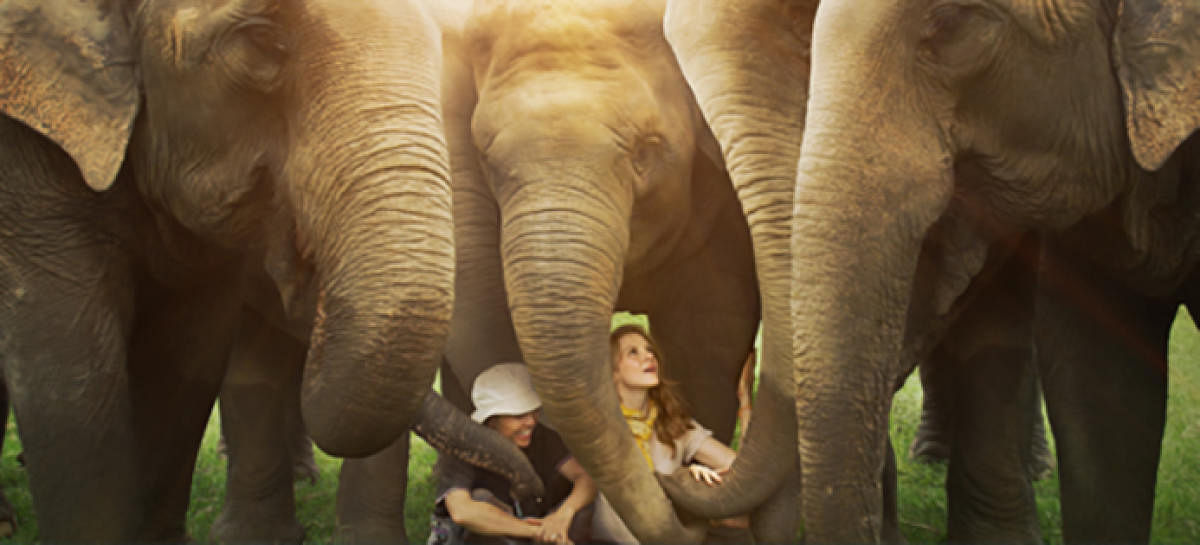'Love and Bananas' in Asian elephant cause

There are no such things as domesticated elephants, they belong to the wild, says world-renowned Asian elephant conservationist Lek Chailert.
Answering questions from a rapt audience at the National Centre for Biological Sciences after the screening of ‘Love and Bananas’, a gripping story by flimmaker and actor Ashley Bell about the dramatic rescue of a 70-year-old abused elephant, Lek, a TIME Magazine’s Hero of Asia, said that like in Southeast Asia, “service” elephants in Bandipur, Kerala and Jaipur endure torture during their taming process.
“Elephants used by trekking agencies in Thailand are brutalised in what is called a crush box, where they are literally crushed and beaten into submission,” says Lek, who runs the Elephant Nature Park in Thailand, where abused Asian elephants are rehabilitated.
In the movie, which highlights the plight of the Asian elephants, Ashely Bell, Lek and her team undertake a tricky 480-km transfer of the aged, dehydrated jumbo Noi Na from a trekking camp to Lek’s camp.
From the tense operation of coaxing Noi Na onto the truck to the gentle giant’s arduous truck ride, where it endures exhaustion and heatstrokes, the movie has its fair share of drama and adventure, with a bit of spontaneous humour thrown in.
Noi Na is a partially blind trekking elephant, that Lek is determined to rescue and convinces its owner to let her go.
“Trekking is a lucrative business in Thailand and most owners are reluctant to give it up,” says Lek, who advocates winning over owners instead of confronting them.
Lek, who was disowned by her own family for speaking up against their trekking business, is fighting for stringent laws in Thailand for the protection of Asian elephants.
She says India, with the largest population of the species, could make a difference. “Elephants are revered in both India and Thailand, but are ill-treated,” says Lek, who stresses on the power of social media to change attitudes.